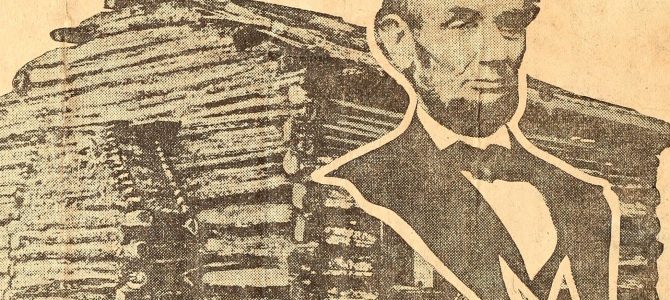
Of the 44 persons who have served as president, only one ever received a Letters Patent for an invention: a man whose 208th birthday we commemorate on the twelfth of this month. A week after retiring from Congress, Abraham Lincoln filed a patent application for his invention “Buoying Vessels over Shoals,” an inflatable floatation device for freeing a river boat run aground in shallow water.
The Patent Office issued Lincoln’s patent 6,469 a few months later on May 22, 1849. Lincoln conceived his side-mounted hull bellows from knowledge gained as a circuit lawyer in Illinois on behalf of conflicting transportation interests. As the citizenry expanded westward, these means included river vessels and railroads, particularly at bridge intersections. Despite the effort he put into it, Lincoln’s bellows were never commercialized, and controversy lingers as to whether his concept would have successfully functioned.
America in the nineteenth century exhibited an inventive spirit, particularly in agriculture where most people gained their livelihood. The sparseness of rural population necessitated mechanization for grain crops in the Midwest, particularly for harvesting.
Cyrus McCormick and John Manny were the most famous producers of reaping machines. In 1855, the former sued the latter for $400,000 over infringement on two patents. With public attention on the upcoming courtroom battle, both sides hired big-league legal teams. Among others, McCormick retained the future Secretary of State William H. Seward from New York, while Manny retained the future Secretary of War Edwin M. Stanton from Philadelphia.
Because McCormick v. Manny was to be tried in Chicago, Manny’s lawyers decided to hire a member of the Illinois bar, selecting an obscure attorney from Springfield. Lincoln’s unpolished speech, ill-fitting clothing, and back-woodsman appearance dismayed the defense team to such extent that Stanton described him as “a damned gawky long-armed ape.” The venue transferred to Cincinnati, enabling Stanton to personally present arguments in court, which resulted in a favorable bench verdict.
The “Reaper” patent infringement suit marked a turning point for Lincoln, despite his sidelined participation. Uninformed of the venue’s change, Lincoln labored on legal arguments in a lengthy brief, which was summarily discarded, unread. Nonetheless, Lincoln listened with rapt attention to Stanton’s arguments in court, later reporting to Ralph Waldo Emerson that he would return home “to study law,” recognizing that “these college-trained men are coming West… [with] all the advantages of a life-long training in the law… and when they appear [in Illinois] I will be ready.”
Learning from the experience, Lincoln honed his skills for the important navigation case Hurd v. Rock Island Railroad in 1857. Effie Afton, a modern steamboat, collided with the Rock Island Bridge, built in 1856 and the first bridge to span the Mississippi River. The steamboat sank, and her owner declared the bridge a hazard to river traffic. Lincoln argued on behalf the railroad and won.
At a lecture in 1859, Lincoln expressed his appreciation of technical advancements and the need to reward such endeavors: “[C]ertain inventions and discoveries occurred, of particular value, on account of their great efficiency in facilitating all other inventions and discoveries. Of these were the arts of writing and of printing – the discovery of America, and the introduction of Patent laws. The date of the first… was as much as fifteen hundred years before the Christian era; the second – printing – came in 1436…. The others followed more rapidly – the discovery of America in 1492, and the first patent laws… in England in 1624, and in this country, with the adoption in our constitution. Before then, any man might instantly use what another had invented, so that the inventor had no special advantage from his own invention. The patent system changed this, secured to the inventor, for a limited time, the exclusive use of his invention, and thereby added to the fuel of interest to the fire of genius, in the discovery, and production of new and useful things.”
The inventive mind of his predecessor Thomas Jefferson envisioned many practical innovations, but that Founding Father had eschewed developing his ideas for market. By contrast, Lincoln preferred rewarding creative people with enforceable incentives to encourage further advancements.
Incidentally, participation on Manny’s team on the “Reaper” case also benefited Lincoln financially. He received a $2,000 fee, which he split with his partner William Herndon. Lincoln used a portion of his share to build a house in Springfield that his wife Mary Todd had wanted. The remainder of the fee enabled Lincoln to debate with Stephen Douglas in their 1858 election bids for the Senate, thereby opening Lincoln’s path to the White House. The notoriety from these debates catapulted him to Republican nomination in 1860. The rest, as they say, is history.









